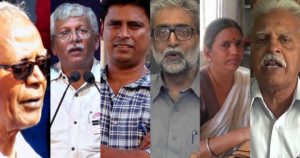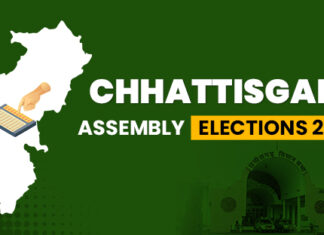On 15 July, 2019, the Lok Sabha passed the National Investigation Agency (Amendment) Bill (NIA), and on 24 July, 2019, it passed the Unlawful Activities Prevention Act (Amendment) Bill (UAPA). These bills give even more sweeping powers to Central governments in investigating and prosecuting individuals.
If the UAPA Amendment Bill is passed in the Rajya Sabha, the UAPA will empower the central government to designate individuals as terrorists. The need to do so was defended by Union Minister Amit Shah on the grounds that other countries have provisions for their states to declare individuals as terrorists, and the Indian state requires the power to do so as well. He said that individuals who “plant terrorist literature” and promote “terrorist theory” should be designated as terrorists.
While the opposition raised voices against the amendment , notably Mahua Moitra (TMC), Asaduddin Owaisi (AIMIM), Danish Ali (BSP), and others , who raised concerns about the use of these amendments in settling political vendettas by the center and how the bill infringes on basic human rights to a fair hearing and keeps power of the central government beyond reasonable checks. The amendment would give the central government the right to designate individuals as a terrorist without the need for evidence or trial and judicial oversight. The definition of terrorism in the bill is vague, and can easily be misused to criminalize thoughts, possession of literature, and many other forms of association. The appeal process against being labeled a process is so complicated that no ordinary person innocent of charges could ever successfully remove the label.




The NIA Amendment bill broadens the powers of the central government in investigating cases they feel are linked with terrorism, including cybercrimes. Together the bills give the central government more power in going after individuals it deems to be a threat.
In the early 2000s, NDA-I passed a series of anti-terror legislation, which allowed the state to violate due process, specifically the Prevention of Terrorism Act (POTA). When the UPA took power again, they repealed POTA, but folded many of the definitions of terrorism and anti-terror legislation into the UAPA, by amending the act. This kept the worst parts POTA alive, keeping it part of the arsenal the state could use to ban organizations and curtail individual rights without any appeal to due process, including appeals, the need for a charge sheet. When it was ratified, the Indian constitution guaranteed the right of freedom of expression, assembly, and association under Article 19 of the constitution. Article 14 (Right to Equality), Article 19 and Article 21 (Right to Life and Personal Liberties) have been called by constitutional scholars as to the “Golden Triangle” of the Indian Constitution, which was designed to be fundamental rights on which a democratic society would grow from. The battle to safeguard these rights is a battle as old as the Indian state. In 1950, one year after the constitution was ratified, when the incipient state attempted to ban literature that was critical of it, the courts noted that the provisions under Article 19 protected even radical literature, prompting the legislature to amend the constitution. The first amendment to the constitution was to article 19 which allowed the state to make, what it called reasonable restrictions to the rights enshrined in article 19, and included protecting the “public order” as one of the grounds for reasonable restrictions. During the early 1960s, when the DMK included independence from India in its election manifesto, coupled with the fear of infiltration during the Indo-Chinese war, the Indian state set up a council to look into the issue of restricting the rights in Article 19 for the purpose of national security. In 1963, the 16th amendment to the Constitution, which empowered the Parliament to pass laws regarding the imposition of restrictions of Article 19 rights, was passed. In December 1967, the UAPA was passed, empowering the state to ban any organization that was deemed a threat to national sovereignty without the judiciary.
The UAPA has been criticized as being draconian even before in the way it does not give restrictions on the state in how it pursues an arrest or ban, how it criminalizes thoughts and beliefs, the vagueness of what it defines as unlawful activity and terrorism, and its use for suppressing dissent and perpetual imprisonment of political prisoners.
According to the National Crime Record Bureau statistics, nearly one thousand cases are booked under UAPA every year, but scarcely 11 convictions occur each year. UAPA cases rarely make it to court, take a long time to be disposed of, and even then, the law is not intended to punish criminal activity, but to assert power. As the UAPA forgoes judicial oversight, cases brought under UAPA are usually flimsy and serve no just purpose.

 The UAPA has been used routinely to harass and imprison people raising dissenting voices, including last year when raided the homes of various human rights activists across the country. A notable case was that of Delhi University professor, GN Saibaba, who, owing to his deteriorating health and weak physical condition, is wheelchair-bound, 90% disabled, and is physically suffering in prison.
The UAPA has been used routinely to harass and imprison people raising dissenting voices, including last year when raided the homes of various human rights activists across the country. A notable case was that of Delhi University professor, GN Saibaba, who, owing to his deteriorating health and weak physical condition, is wheelchair-bound, 90% disabled, and is physically suffering in prison.
Arbitrary use of anti-terror laws has usually been counter-productive. For example, in the case of POTA, only 13 people were convicted in the 4,349 cases it covered. Arbitrary anti-terror laws usually lead to the flawed and uncertain procedure, which often backfire in preventing violent activities and create an unending sense of undeclared war reminiscent of the emergency.
The National Investigation Agency is a central agency formed in 2008 after the Mumbai attacks with the mandate to combat terrorism across India. The Agency was created by the NIA (Amendment) Bill with only six members of parliament opposing. The NIA now has the power to investigate offenses regarding human trafficking, counterfeit, prohibited arms, explosives, and cybercrimes. The amendment has greatly increased the jurisdiction of the NIA, as it allows the NIA to investigate offenses taking place outside of India, subject to international treaties and foreign law, and allows the central government to override local police. The NIA also is empowered to constitute special courts that are capable of imposing penalties, including the death penalty.
These two amendments are steps to turning India from a modern democracy to a feudal estate. The amendment to the UAPA makes it clear that the Central government does not need evidence or procedure when deeming people criminals anymore, and makes a mockery of the judicial process by allowing the central government a free hand choosing its enemies. The amendment to the NIA gives the central government the ability to override local police and handle cases on its own. Neither amendment makes the country any safer as gathering proper evidence, the use of correct authorities and the evaluation by an unbiased judiciary are the only ways to make the country safe from anti-social evidence. All these amendments do is gives those who are in power in the center an additional weapon in their arsenal to attack those that raise a dissenting voice, and violate the rights of subjects in an undeclared emergency era.
























[…] Related Reading: UAPA and NIA amendments: Tools to silence dissenting voices […]
[…] UAPA and NIA amendments: Tools to silence dissenting voices […]